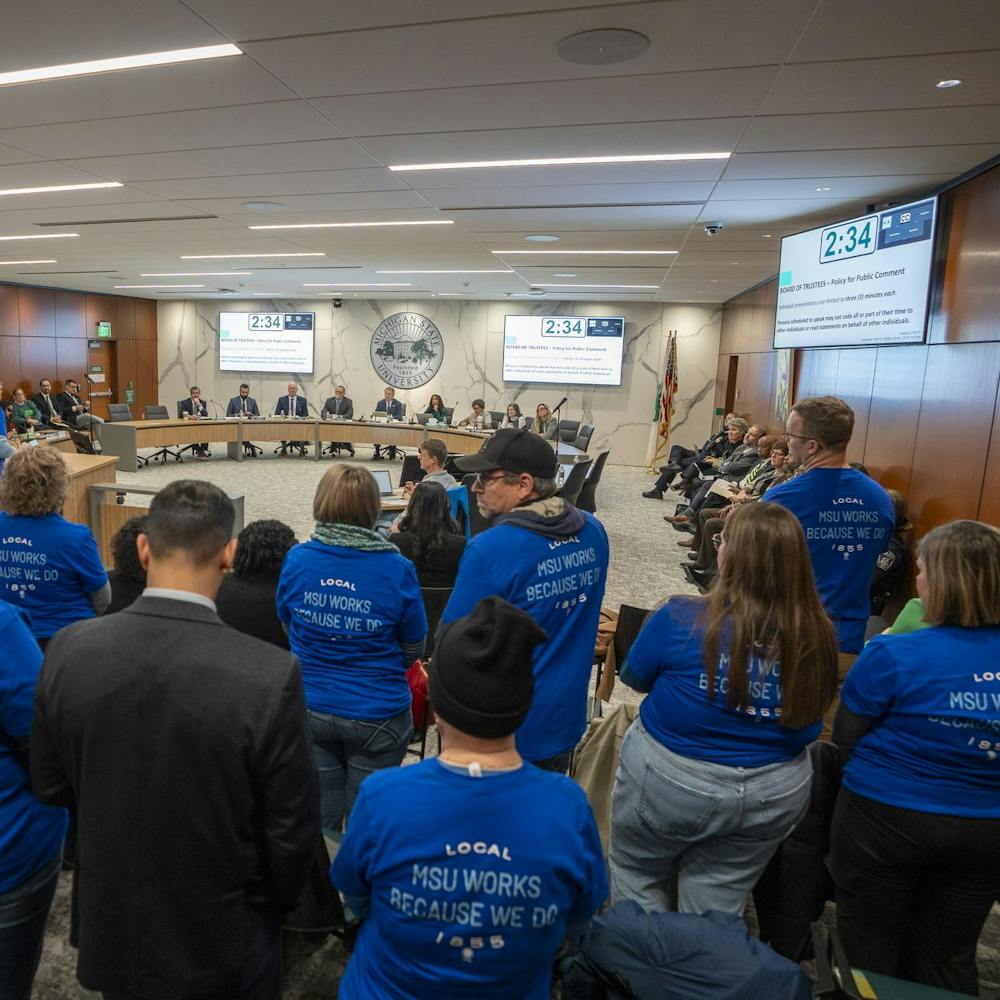Gaslighting is a form of psychological abuse and manipulation that causes the survivor to question their own thoughts, feelings, experiences and sense of reality.
Used commonly by abusers and narcissists, gaslighting keeps survivors from leaving toxic situations, fighting back or even telling others.
According to Silvia Leija, an embedded therapist in MSU's College of Veterinary Medicine from Counseling and Psychiatric Services (CAPS), the term "gaslight" originates from a 1938 stage play and subsequent 1944 movie.
Leija said the movie, actually titled "Gaslight," depicts a psychologically abusive relationship where the protagonist strategically aims to make his significant other lose her mind by distorting her memory and manipulating her friends and physical environment.
As a result of the toxic environment gaslighting creates, Leija said an individual could also often end up unintentionally gaslighting themselves through the suppression of their personal thoughts and feelings — this can look like negative self-talk or harmful coping mechanisms.
However, Leija said gaslighting oneself is a learned behavior, or survival mechanism, developed to cope with the abuse.
"The difficulties with psychological abuse is that once someone has heard negative or psychologically abusive messages over and over again, the person begins to believe this narrative," Leija said. "It begins to feel real and accurate — that's how brainwashing works."
Common gaslighting signs, phrases
Signs of gaslighting may be hard to spot from the survivor's perspective, though they are often the simplest things. The perpetrator may minimize reality, deflect blame, throw insults or even stonewall, which translates to delaying or not offering a response.
Common gaslighting phrases that tie in with this behavior include, but are not limited to:
- "You're overreacting; Don't get so worked up; Don't be so sensitive; Let it go."
- "It was a compliment, but you took it the wrong way."
- "You're crazy. There are more serious things happening right now and you're upset about this?"
- "I'm worried, I don't think you are well."
Leija said that if an individual has experienced gaslighting, it may be hard for them to trust others or even themselves. They may also find themselves unnecessarily apologizing, assuming things are their fault and that they're being too sensitive, experiencing a lot of self-doubt, feeling isolated and as if they have to convince people or prove the facts.
How to heal from the effects of gaslighting
"When a person or an oppressive system continuously tells you that your experience is not real, that you shouldn't talk about it or that you aren't allowed to process your pain, the learned belief is that something is wrong with you, that you shouldn't trust your experience and that you aren't worthy of love or care," Leija said.
While it is difficult to reverse the effects of abuse such as gaslighting, it is not impossible.
An individual can work to heal from their experiences through things like therapy or self-affirmations — these are efforts toward unlearning the damaging messages that were once ingrained into their mind.
Self-affirmations, Leija said, are ways to assert the validity of an individual's thoughts, feelings, experiences and sense of reality. They allow a person to begin to rely on, trust and believe in themselves.
Common affirmations that tie in with this behavior include, but are not limited to:
- "I know what I saw/heard."
- "I am confident in beliefs and perceptions."
- "My experience was real."
- "I honor what I felt."
- "I can trust my intuition."
- "I did not deserve to be violated."
The very first and most important step of the healing process is to end the relationships that perpetuate gaslighting. While this can be challenging, it is crucial to remember that, in doing so, you are ultimately setting yourself free.
Support student media!
Please consider donating to The State News and help fund the future of journalism.
Also having a safe place to process your thoughts, feelings and experiences as you rediscover who you are will aide in the healing process. Leija said this could be done through journaling, talking with trusted friends and family members or talking with a mental health professional.
Some prompts offered by Healthline for journaling about your experiences include, but are not limited to:
- "How has self-gaslighting served my survival in the past? How did it help me cope?"
- "How does self-gaslighting no longer serve me in this moment (or in the future)? How am I being harmed?"
- "What’s one thing I can do right now to practice self-compassion?"
- "How do I feel in my body as I explore this?"
Explore, forgive, tell about and reclaim your personal story, even if it feels scary.
For more mental health resources and support, you can reach out to CAPS at caps.msu.edu.
Discussion
Share and discuss “What is gaslighting? MSU CAPS counselor offers some understanding and advice” on social media.








